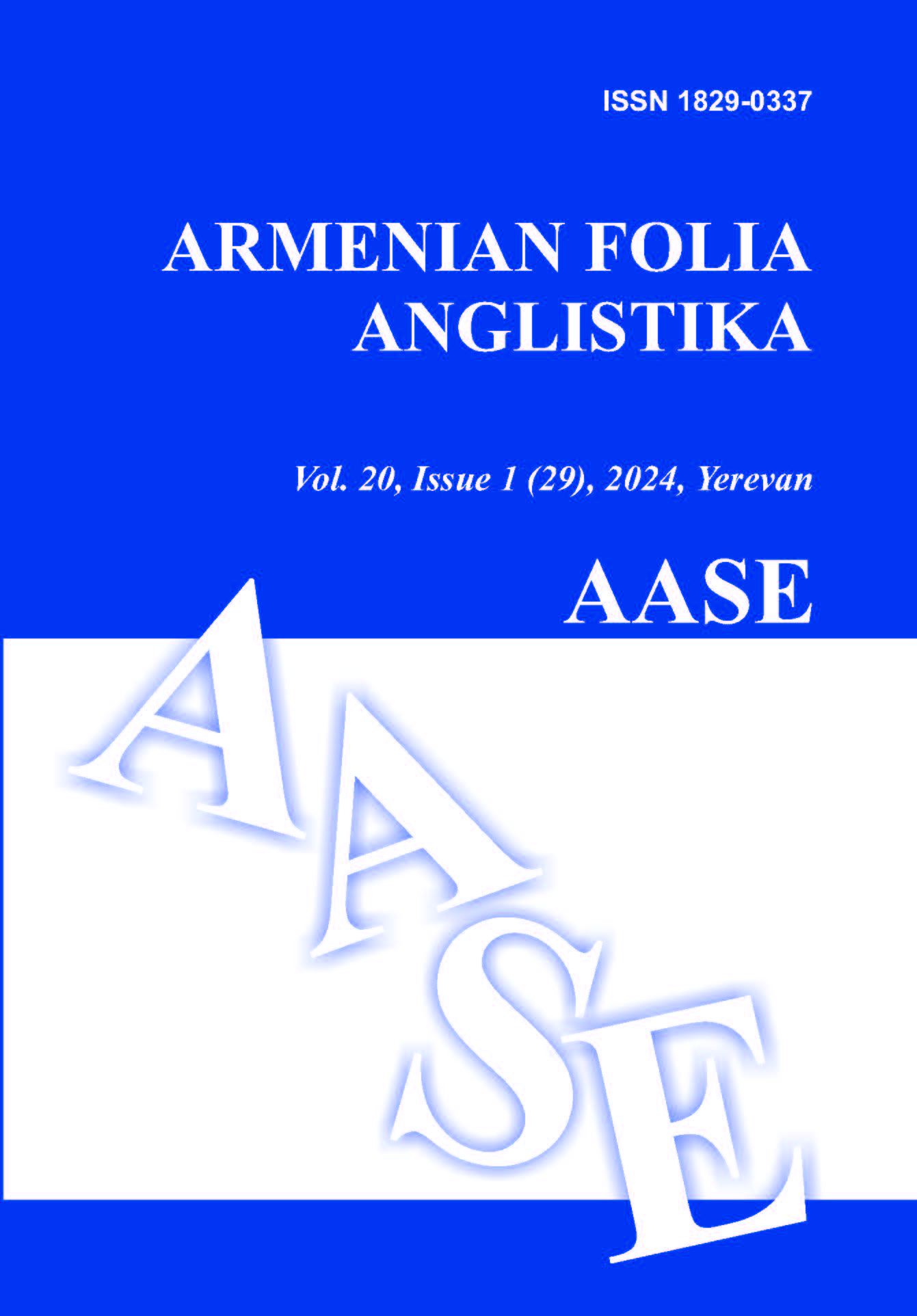BEYOND LITERAL INTERPRETATIONS: EXPLORING THE CULTURAL AND COGNITIVE DIMENSIONS OF ENGLISH BODY PARTS IDIOMS
DOI:
https://doi.org/10.46991/AFA/2024.20.1.129Keywords:
body parts idioms, cultural dimensions, cognitive dimensions, figurative meaning, societal valuesAbstract
The present study aims at unraveling the deep cultural and cognitive dimensions embedded within English idioms that relate to body parts. Through a systematic analysis of a comprehensive corpus compiled from diverse sources such as dictionaries and websites, it scrutinizes not only the literal interpretations of these idioms but also their socio-cultural significance and cognitive underpinnings. The findings highlighted the solid interplay between language, culture, and cognition, shedding light on how these body parts idiomatic expressions reflect and shape socio-cultural norms and cognitive processes. These idioms are revealed to be more than mere linguistic quirks; they serve as conduits for conveying shared experiences and cultural heritage. The findings of the present study not only enrich our understanding of language and culture but also offer practical implications for English as a foreign language education and cross-cultural communication. The insights gained from this investigation contribute to various fields, such as linguistics, cultural studies, cognitive science, and language education.
Downloads
References
Bazzanella, C. (1992). Conventional metaphors: A view from polysemy. Metaphor and Symbolic Activity, 7(3), 161-182.
Clark, E. V. (1993). The lexicon in acquisition. Cambridge: CUP.
Gibbs, R. W. (1993). Process and products in making sense of tropes. In A. Ortony (Ed.), Metaphor and thought (pp. 252-276). Cambridge: CUP.
Gibbs, R. W., & Colston, H. L. (2012). Interpreting figurative meaning. Cambridge: CUP.
Goatly, A. (1997). The language of metaphors. England: Routledge.
Katan, D. (2018). Translation and cultural awareness in the EFL classroom: Exploring the interplay between language learning and cultural learning. The Modern Language Journal, 102(2), 394-409.
Langacker, R. W. (1987). Foundations of cognitive grammar: Volume I, theoretical prerequisites. California: Stanford University Press.
Schmitt, N. (2000). Vocabulary in language teaching. Cambridge: CUP.
Steen, G. (2007). Finding metaphor in discourse: Pragmatics, metaphor, and the study of language. Amsterdam: John Benjamins Publishing.
Wierzbicka, A. (1992). Semantics, culture, and cognition: Universal human concepts in culture-specific configurations. Oxford: OUP.
Wierzbicka, A. (2006). English: Meaning and culture. Oxford: OUP.
Downloads
Published
How to Cite
Issue
Section
License
Copyright (c) 2024 Author(s)

This work is licensed under a Creative Commons Attribution-NonCommercial 4.0 International License.














